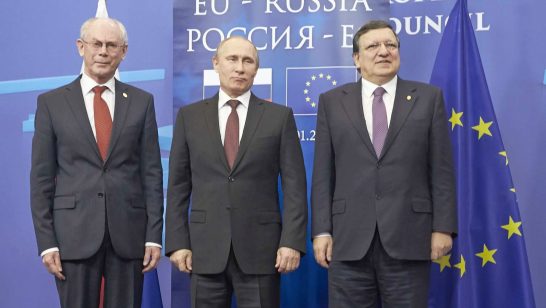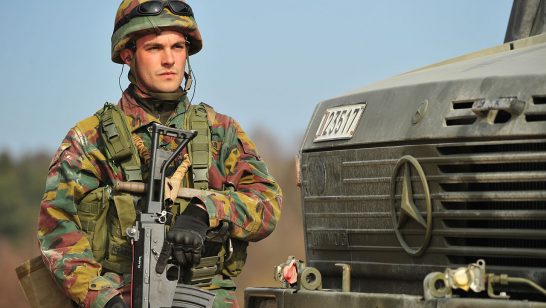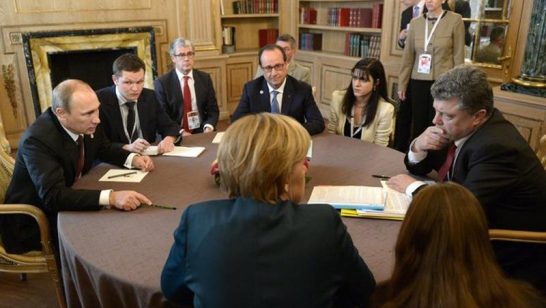
“We are part of Europe. Europe is us, we are Europe.” Turkish Prime Minister Ahmet Davutoğlu’s words in January this year echoed those of his predecessor Turgut Özal who had first submitted Turkey’s application to join the EEC in 1987. He was speaking to his fellow Justice and Development Party (AK Party) MPs after a hurried visit to Paris, where he marched alongside President Hollande and other world leaders to commemorate the victims of the Paris murders. What he said may have chimed with the discussion of reconciliation between faiths. But instead of echoing a strong defence of free speech across Europe in reaction to the killings, he emphasised the dangers of Islamophobia. Turkey, he declared, would never permit racism towards Muslims in Europe. Later, he argued that freedom of expression starts where mutual respect begins. He had been in Paris “in the name of Turkey, in the name of the Islamic world, essentially to proclaim the reality that no link can be made between terrorist activities and Islam… We have never remained silent and never will remain silent in the face of any insult to our blessed Prophet.”
When he became Prime Minister last August, Ahmet Davutoğlu had declared that January 2015 was to be “Europe month”. In September, his Minister for Europe, Volkan Bozkır, had launched a new five-year European strategy, reviving hopes in some circles that the membership negotiations could be re-energised.[1] In January, Bozkır even asserted that Turkey could close all the chapters of the accession negotiations in two years. Davutoğlu’s predecessor, the current President Recep Tayyip Erdoğan, had spoken of 2014 as the “Year of Europe”, but in recent years Turkey’s candidacy has not seemed a priority. Yiğit Bulut, Erdoğan’s chief economic adviser, argued that Europe would no longer be a major international player and Erdoğan has even talked about joining the Shanghai Cooperation Organisation instead. In September 2012 he made his keynote speech to the AK Party conference without mentioning Europe once. Yet the messaging from Ankara has not been consistent: in October 2012, Erdoğan said he expected Turkey to join the EU at the latest by 2023.
Turkey has never easily embraced the role of supplicant in its approach to EU membership. “When we’re in Paris, Berlin, Brussels, we speak as Europeans; in Samarkand and Bukhara we speak as descendants of Hoca Ahmed Yesevi.[2] In Damascus, Baghdad and Mecca we speak as children of the Prophet; in Sarajevo and Skopje as the offspring of the Ottoman conquerors,” the Prime Minister told his fellow MPs. For Davutoğlu, Turkey’s European identity is just one facet of Turkey’s global and regional identity, and it is Turkey’s role to speak for Islam in Europe. Davutoğlu claimed that Europe will only obtain peace and tranquillity when it is accepted that Islam is a fundamental component of Europe.
Turkey’s relations with the EU had been badly damaged by events in 2013. Extreme use of force in suppressing demonstrations across Turkey illustrated the gulf between the AK Party and European leaders. So did Erdoğan’s inflammatory language, the tear-gassing in İstanbul of the German Green Party leader and a clumsy, unsuccessful government attempt to persuade EU ambassadors that a video recording of protestors sheltering in a mosque showed them drinking beer. Then there were serious corruption allegations involving four government ministers, followed by the replacement of police chiefs and prosecutors responsible for initiating the investigation. As the October 2014 European Commission Progress Report put it, amendments to the law for appointing judges and prosecutors were then adopted which raised “serious concerns over the independence of the judiciary and the separation of powers”, and which were introduced “in a very short period of time and with no proper stakeholder consultation.”
Since then, critics have pointed to a stream of legislation aimed at strengthening the executive. A bill being pushed through parliament by the AK Party would give enhanced powers of detention to the police and increase the remit of government-appointed provincial governors. The Interior Minister justified the bill by reference to comments in the 2014 Progress Report that further reforms were needed to give civilian authorities oversight of the gendarmerie’s law enforcement activities. That is unlikely to impress those in Europe alarmed at the concentration of power in the hands of the executive. If the AK Party wins sufficient seats at the 7th June general election, Erdoğan aims to introduce a powerful executive presidency – removing ministerial accountability to parliament and probably making the position of Prime Minister redundant.
The aftermath of the killings in Paris further highlighted how the Turkish government’s understanding of Europe differs radically from the prevailing mood in France and across the continent. Reporters without Borders issued a statement deploring the presence at the Paris march of “officials from countries that restrict freedom of information in Europe”, naming Davutoğlu.
Enlargement fatigue in the EU was made explicit last autumn by Jean-Claude Juncker, President of the European Commission, when he told his new Enlargement Commissioner there would be no further enlargement in the next five years, only negotiations. Ankara seems keen to keep the talking going, but there is no appetite in Turkey for adopting the Euro, although this is a legal requirement for new EU members once they fulfil the criteria. Another major obstacle: the EU insists Turkey must recognise the Republic of Cyprus and open its ports and airports to Cypriot vessels and aircraft, while Turkey demands the EU lift its embargo on trade with the unrecognised Turkish Cypriot Republic. Additional problems have arisen over the exploitation of natural gas resources around Cyprus.
There are, though, some positive signs. Trade with the EU is increasing: in 2014, Germany was the largest buyer of Turkish exports, with Britain, Italy and France in the top five. And in research conducted last June, for the first time since 2006 a majority (53%) of Turks believed membership of the EU would be a good thing for Turkey. Nevertheless, Turkey will be pre-occupied at least until June with its parliamentary general election. No-one doubts the AK Party will win – what is not yet known, though, is the scale of that victory, determining whether Erdoğan will be able to introduce an executive presidency model. Thus, it is unlikely that for Turkey the European Union will move up the agenda until the autumn at the earliest.
[1] Marc Pierini and Sinan Ülgen, “A Moment of Opportunity in the EU-Turkey Relationship”, Carnegie Europe 10th December 2014 http://carnegieeurope.eu/2014/12/10/moment-of-opportunity-in-eu-turkey-relationship. Note, however, a much more sceptical analysis in Toni Alaranta, “Turkey under the AKP: A critical evaluation from the perspective of Turkey’s EU negotiations”, Finnish Institute of International Affairs, 9th February 2015 http://www.fiia.fi/en/publication/480/turkey_under_the_akp/.
[2] A famous Central Asian Sufi mystic.
The opinions articulated above represent the views of the author(s), and do not necessarily reflect the position of the European Leadership Network or any of its members. The ELN’s aim is to encourage debates that will help develop Europe’s capacity to address the pressing foreign, defence, and security challenges of our time.



